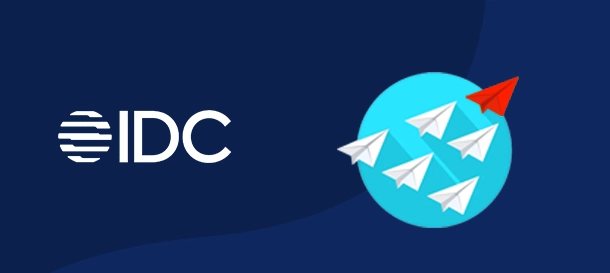In today’s dynamic business environment, organizations are increasingly turning to accounting outsourcing to streamline operations, reduce costs, and access specialized expertise. This comprehensive guide delves into the multifaceted world of accounting outsourcing, exploring its benefits, potential challenges, implementation strategies, and future trends.
Understanding Accounting Outsourcing
Accounting outsourcing involves delegating financial and accounting functions to external service providers. This practice enables businesses to focus on core activities while leveraging the expertise of specialized accounting firms.
The Evolution of Accounting Outsourcing
The concept of outsourcing accounting functions has evolved significantly over the past few decades. Initially, businesses outsourced basic tasks like payroll processing and bookkeeping. However, with advancements in technology and the globalization of services, outsourcing now encompasses complex functions such as financial analysis, tax planning, and strategic financial management.
Key Benefits of Accounting Outsourcing
- Cost Reduction: Outsourcing eliminates the need for full-time, in-house accounting staff, reducing overhead costs associated with salaries, benefits, and training. Additionally, businesses can avoid expenses related to accounting software and infrastructure.
- Access to Expertise: Partnering with specialized accounting firms provides access to professionals with extensive knowledge and experience, ensuring compliance with the latest regulations and standards.
- Scalability and Flexibility: Outsourcing allows businesses to scale services up or down based on current needs, providing flexibility to adapt to market changes without the constraints of managing internal staff.
- Enhanced Focus on Core Activities: By delegating accounting tasks, companies can concentrate on strategic initiatives and core business functions, driving growth and innovation.
- Improved Accuracy and Compliance: Professional accounting firms utilize advanced systems and processes, reducing errors and ensuring adherence to regulatory requirements.
Potential Drawbacks of Accounting Outsourcing
- Loss of Control: Entrusting financial functions to external providers may lead to a perceived loss of control over critical business information.
- Data Security Concerns: Sharing sensitive financial data with third parties poses risks related to data breaches and confidentiality.
- Communication Challenges: Differences in time zones, language barriers, and cultural differences can hinder effective communication between the business and the outsourcing provider.
- Dependency on Service Providers: Over-reliance on external firms may result in challenges if the provider faces disruptions or fails to meet performance expectations.
Types of Accounting Functions Commonly Outsourced
- Bookkeeping Services: Recording financial transactions, maintaining ledgers, and reconciling accounts.
- Payroll Processing: Calculating employee wages, managing deductions, and ensuring timely payments.
- Tax Preparation and Compliance: Preparing and filing tax returns, ensuring compliance with tax laws, and planning for tax liabilities.
- Accounts Payable and Receivable: Managing incoming and outgoing payments, invoicing, and collections.
- Financial Reporting: Preparing financial statements, management reports, and analysis for decision-making.
- Controller Services: Overseeing accounting operations, ensuring accuracy, and implementing financial controls.
- CFO Services: Providing strategic financial planning, budgeting, forecasting, and advisory services.
Steps to Successfully Implement Accounting Outsourcing
- Assess Business Needs: Identify which accounting functions to outsource based on internal capabilities and business goals.
- Select a Reputable Provider: Research and evaluate potential outsourcing partners based on experience, expertise, and client reviews.
- Define Scope and Objectives: Clearly outline the services to be outsourced, expected outcomes, and performance metrics.
- Establish Communication Protocols: Set up regular meetings, reporting schedules, and communication channels to ensure transparency and collaboration.
- Ensure Data Security: Implement robust data protection measures and ensure the provider complies with relevant security standards.
- Monitor Performance: Regularly review the provider’s performance against agreed-upon metrics and make adjustments as necessary.
Future Trends in Accounting Outsourcing
- Adoption of Advanced Technologies: The integration of artificial intelligence, machine learning, and automation is transforming accounting processes, enhancing efficiency and accuracy.
- Focus on Strategic Partnership: Businesses are seeking outsourcing providers who can offer strategic insights and advisory services beyond transactional tasks.
- Emphasis on Data Analytics: Leveraging data analytics to gain financial insights is becoming a critical component of outsourced accounting services.
- Regulatory Changes: Staying abreast of evolving regulations is essential, and outsourcing partners are expected to provide guidance on compliance.
How Emagia Revolutionizes Accounting Outsourcing
Emagia offers a comprehensive suite of digital solutions that transform traditional accounting outsourcing. By integrating artificial intelligence and automation, Emagia streamlines financial operations, enhances accuracy, and provides real-time insights, empowering businesses to make informed decisions and achieve greater financial agility.
Frequently Asked Questions
What is accounting outsourcing?
Accounting outsourcing involves delegating financial tasks to external service providers, allowing businesses to focus on core activities while accessing specialized expertise.
What are the benefits of outsourcing accounting services?
Benefits include cost reduction, access to expert professionals, scalability, improved focus on core business functions, and enhanced compliance and accuracy.
Which accounting functions can be outsourced?
Commonly outsourced functions include bookkeeping, payroll processing, tax preparation, accounts payable and receivable, financial reporting, and CFO services.
How do I choose the right accounting outsourcing provider?
Evaluate providers based on their experience, expertise, client testimonials, data security measures, and alignment with your business needs.
What are the risks associated with accounting outsourcing?
Potential risks include loss of control, data security concerns, communication challenges, and dependency on the service provider.
How can I mitigate the risks of outsourcing accounting services?
Mitigation strategies include thorough due diligence, clear communication protocols, robust data security measures, and regular performance monitoring.
Is accounting outsourcing suitable for small businesses?
Yes, accounting outsourcing is highly suitable for small businesses as it provides cost-effective access to expert services, enabling them to focus on growth and strategic activities without the need for a full-time accounting team.
How does technology impact accounting outsourcing?
Technology, such as cloud-based software, artificial intelligence, and automation, has revolutionized accounting outsourcing. It improves efficiency, ensures real-time data access, and reduces manual errors, making outsourced services more effective and scalable.
What is the difference between accounting outsourcing and hiring an in-house accountant?
Hiring an in-house accountant involves recruiting a full-time employee to manage accounting tasks internally. Accounting outsourcing, on the other hand, involves delegating these tasks to an external firm, offering flexibility, cost savings, and access to a wider pool of expertise.
How can Emagia specifically help with accounting outsourcing?
Emagia uses AI-driven tools to optimize financial operations, automate routine tasks, and provide deep insights into financial data. By partnering with Emagia, businesses can achieve seamless integration of advanced technology into their accounting processes.
What industries benefit the most from accounting outsourcing?
Industries such as technology, healthcare, retail, manufacturing, and startups benefit significantly from accounting outsourcing due to the need for precise financial management and regulatory compliance without overburdening internal teams.
How can I ensure data security when outsourcing accounting?
To ensure data security, work with providers that adhere to global data protection standards, use encrypted communication, and have stringent confidentiality agreements in place. Regular audits and compliance checks are also essential.
What are the costs associated with accounting outsourcing?
Costs vary depending on the complexity and volume of tasks, as well as the provider’s expertise. Many outsourcing firms offer flexible pricing models, such as per-project fees or monthly retainers, making it affordable for businesses of all sizes.
How do I measure the success of accounting outsourcing?
Success can be measured by evaluating cost savings, accuracy improvements, enhanced compliance, efficiency gains, and the ability to focus on core business functions. Regular performance reviews and feedback help ensure alignment with business goals.
By leveraging the detailed insights provided in this guide, businesses can effectively navigate the landscape of accounting outsourcing, ensuring maximum benefits while minimizing risks. With the support of innovative solutions like Emagia, companies can stay ahead in an increasingly competitive marketplace, optimizing their financial operations and driving sustainable growth.







